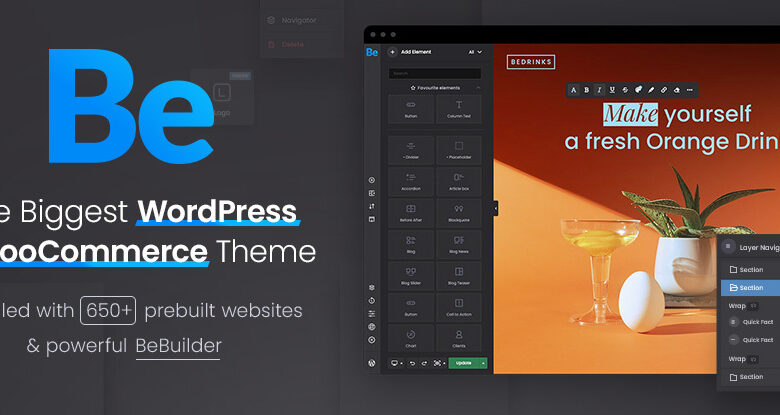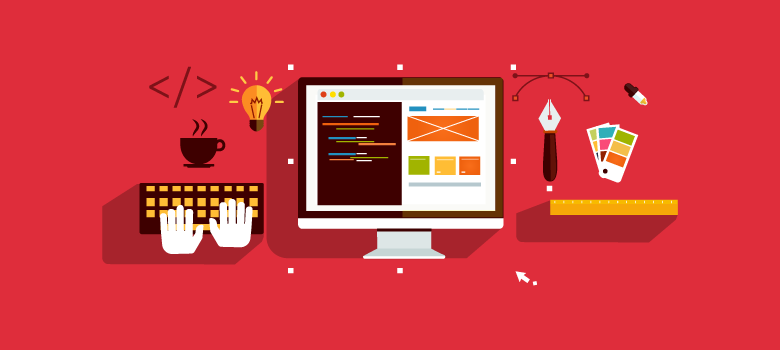The online blogosphere is full of websites talking about how to make websites. But there are also many niche topics like vector art, pattern design, and pixel-perfect icons.
Chris Spooner has risen to fame through his popular digital design blog SpoonGraphics. He’s a very skilled designer with a focus on vector art and some interface design.
This interview delves into Chris’ history and opinions relevant to the design industry.

Q: How did you get started with design and what made you stick with it for so many years?
I always excelled at the Art and Design subjects in school so I continued studying at college and university, which naturally led me into my first full time job as a Graphic/Web Designer.
Q: Can you share a little about your work history? What was your first real design job and how much work have you done to get to where you are today?
My first full time job was at a small local design studio, which was actually the first job I applied for straight out of university.
During that time I set up my Spoon Graphics design blog, which gradually grew in size to the point where it allowed me to leave my job and head into the world of self-employment as a freelancer. Over recent years I’ve been lucky enough to reduce the amount of project work to the point where I now run my design blog as a full time job.
Q: Out of curiosity, how long do you think it took for you to go from creating novice work to “good” work? At the time could you recognize your skills were improving, or is it more like an “in retrospect” kinda thing?
Whenever we look back at our old work we all shudder and cringe, so it’s definitely something you only become aware of in retrospect.
Writing tutorials has actually helped me improve my skills. It’s important to fully understand a technique if you’re going to explain it to others!
Q: How did you get the idea for SpoonGraphics and what was your goal when first launching the blog? It’s been online for many years now – do you feel it has achieved its goal?
Back in 2006/2007 I saw a bunch of design blogs springing up and I simply decided to give it a go myself to share what I knew about Adobe Illustrator with others.
Illustrator tutorials were quite rare compared to guides for Photoshop, so my blog found a niche. I never expected it to grow so large. In fact, I never really had any plans for it. I still don’t have a specific goal.
I’m just happy riding along and seeing where it takes me!
Q: Right after launching SpoonGraphics how difficult was it to maintain & build an audience? Do you still have time to manage new content?
Since I found a niche with Illustrator tutorials an audience started to grow quite fast. My posts often ranked highly in search results and were often included in tutorial roundups on other websites.
These days I find it a little easier to manage new content since I do this all day, every day. But the articles are much more in depth so I still find myself worked to the max.
Q: When did you decide to launch Line25, and what’s been your experience running that site along with SpoonGraphics?
I launched Line25 in 2009 after becoming more interested in Web Design.
After developing Spoon Graphics with a focus on Illustrator and Graphic Design, I didn’t want to suddenly oversaturate it with web design stuff, so I decided to set up a new standalone blog with its own branding. Over recent years I’ve actually lost interest and fallen behind with the web design scene so Line25 was sold a few months ago.
Q: What’s your typical creative process when starting on a new project? How do you brainstorm & organize ideas to figure out the best creative direction?
Design projects for me these days involve writing a tutorial or creating a free design resource. Since there’s no client giving me requirements, I simply create stuff based on what takes my fancy or inspires me.
I’ll often browse Pinterest and other inspiration sites to find design styles that I’d love to try out myself.
Q: Do you prefer working with an agency/in-house or doing freelance work? Do you feel one offers more creativity than the other?
I did a bit of agency work back in the day. I really enjoyed the social aspect of it, but I much prefer working alone.
Q: Are there any fundamental concepts or bits of knowledge you wish you knew back when you first started to learn design?
I think the use of grids to balance a design (even for logo designs) is something that would have really improved my older work.
Q: How much do you think a designer should specialize? Is it better for a designer to focus on one area(print, web, calligraphy) or attempt to become a jack of all trades?
I think there are benefits to both.
Some people find huge success being a specialist in one subject, whereas others set themselves up as a one-stop-shop where they can offer a wide range of services. It all depends on your personal interests.
I think I personally have a broad range of design interests but they’re confined within a certain area of expertise.
Q: What are your thoughts on drawing as a key skill for design work? Do you think all designers should learn how to draw? And why or why not?
Drawing not so much – unless you want to be an illustrator!
But sketching is a great skill that anyone can do. Drawing skills obviously come in handy for creating more artistic work, but with the digital tools that are available to us it’s possible to create great design work without touching a traditional tool.
Q:Do you have any favorite designers that do awesome work or that you think are just awesome people?
I’ve always admired James White’s work (aka Signalnoise). It’s been interesting to see his style develop and change over the years I’ve followed him.
Otherwise I actually find inspiration from many different designers and artists, some of which I don’t even know their names. But I often recognize their work on showcase websites.
Q: So much has changed on the web looking back even just ten years ago. Do you have an opinion or any ideas regarding what else we might expect to change over the next 3-5 years?
It’s hard to say!
I don’t think I could have predicted how the web looks now 10 years ago and likewise I can’t imagine what will change in the next decade.
Q: Lastly can you share any vital tips or words of advice for young design students just starting their career?
I’ve seen great success from blogging and sharing the things I’ve learned with others so I’d definitely recommend that people embrace the social aspect of the web and interact with fellow designers. It can lead to some amazing opportunities!
I’d like to thank Chris for taking the time to do this interview – if you want to learn more check out his personal site or his design blog Spoon Graphics.






Leave a Reply